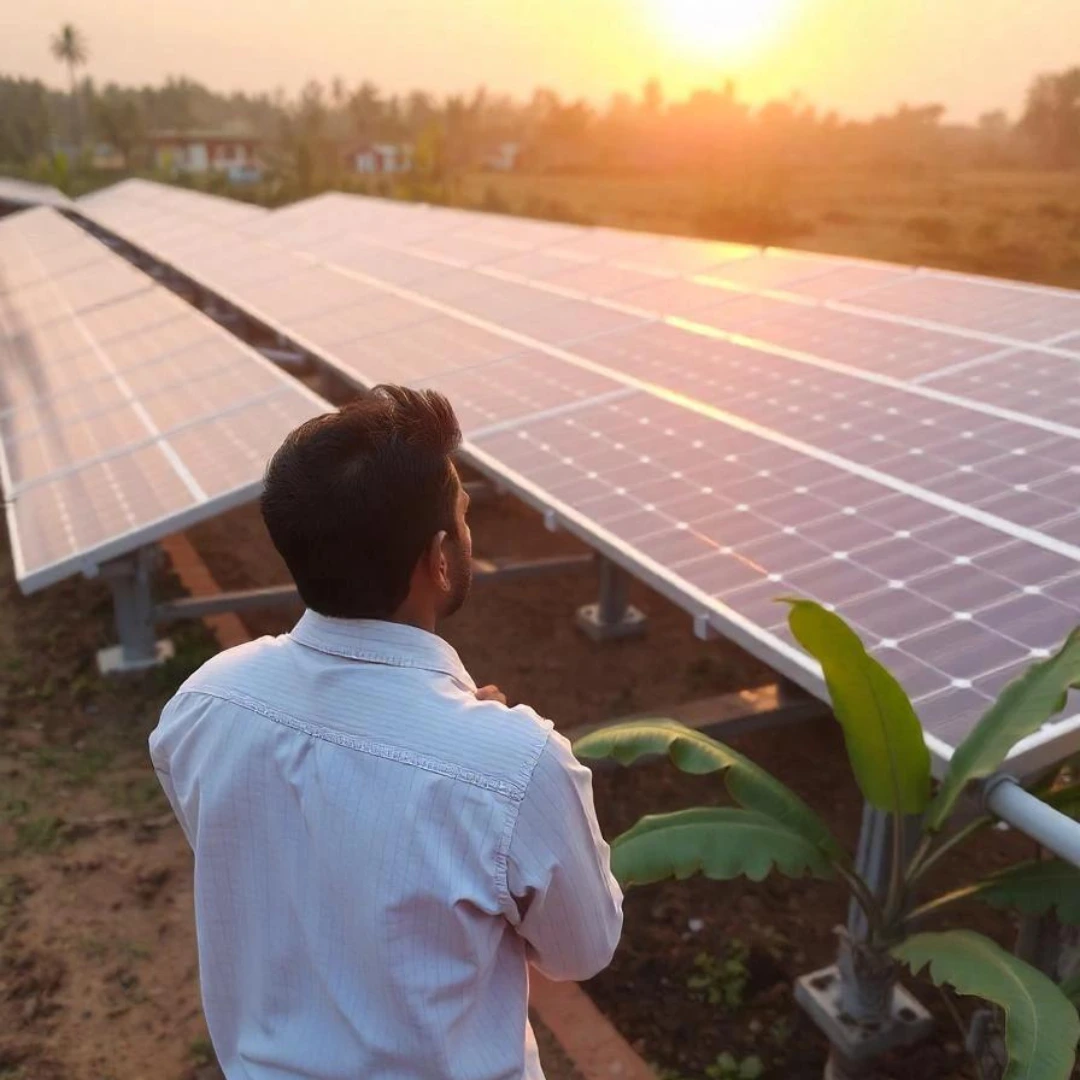Solar Panel
Solar Energy
Solar Power
Solar Subsidy
The MNRE solar subsidy program is a vital initiative by the Ministry of New and Renewable Energy aimed at promoting solar power adoption across India. This subsidy scheme for rooftop solar significantly lowers the cost of installing solar photovoltaic systems for residential, commercial, and institutional users, making renewable energy more accessible and affordable. By providing financial assistance, the MNRE encourages the widespread use of solar energy, helping to reduce electricity bills and lower the carbon footprint. The program supports India's ambitious renewable energy goals and sustainable development agenda, driving growth in the solar sector and fostering environmental protection. For those looking to invest in solar power, the MNRE solar subsidy offers an excellent opportunity to benefit from substantial cost savings and contribute to a greener future.
Get on the right track to efficient solar power system with quality and subsidy*
You can now plan for a new source of
electricity without any hectic planning.
Solar energy power system offers a
way to tap solar energy to produce
electricity to meet our use and to
care for the nature.
- Advanced solar technology
- Easy to install
- Emerging solar panel technology
- Hybrid solar technology with lithium-ion battery
- Best investment for commercial users
Solar power for residential & commercial solar
applications
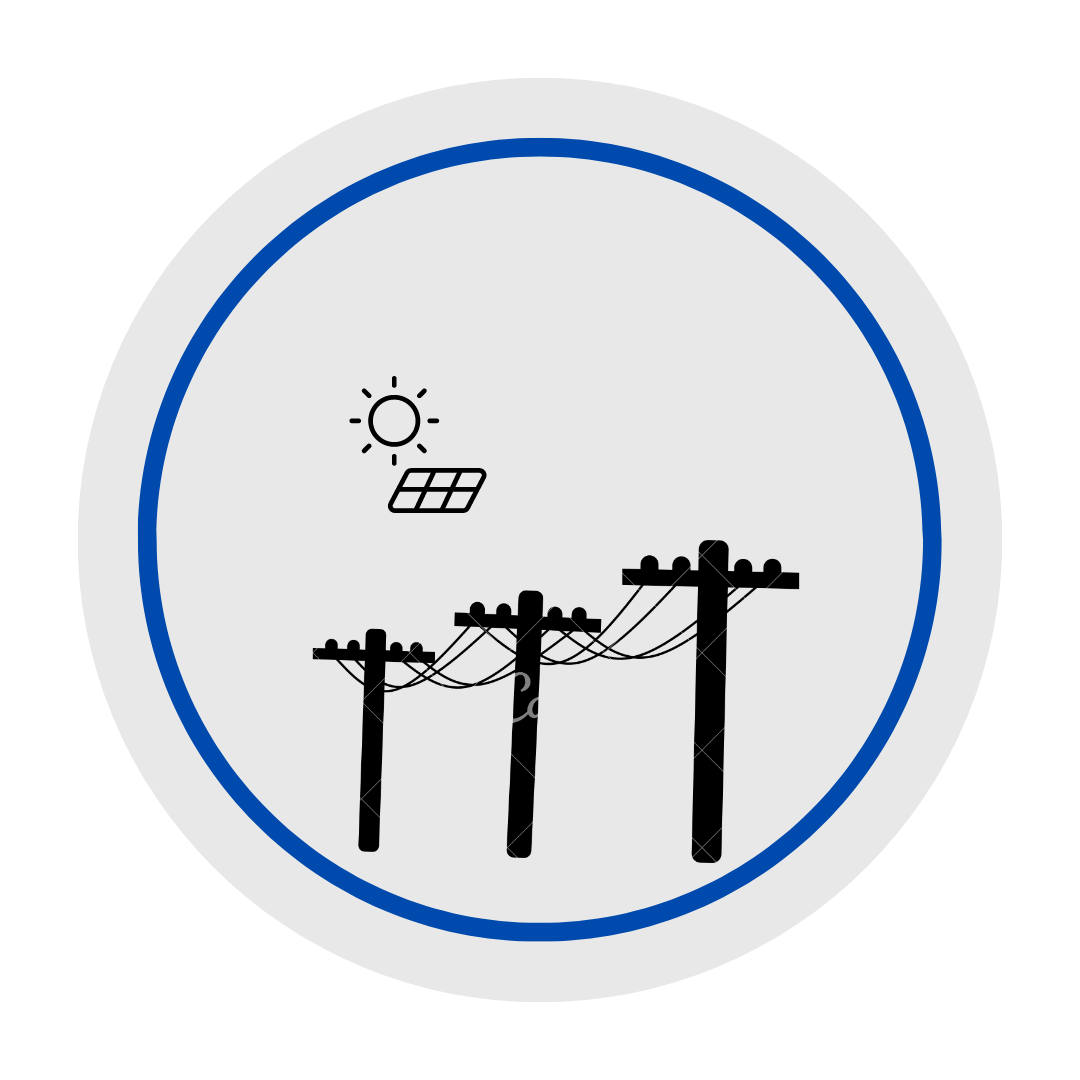
On-grid Solar
On-grid solar power system enables us to
produce electricity from solar panels and
to sell or export excess electricity to the grid.
If you like to produce electricity and sell
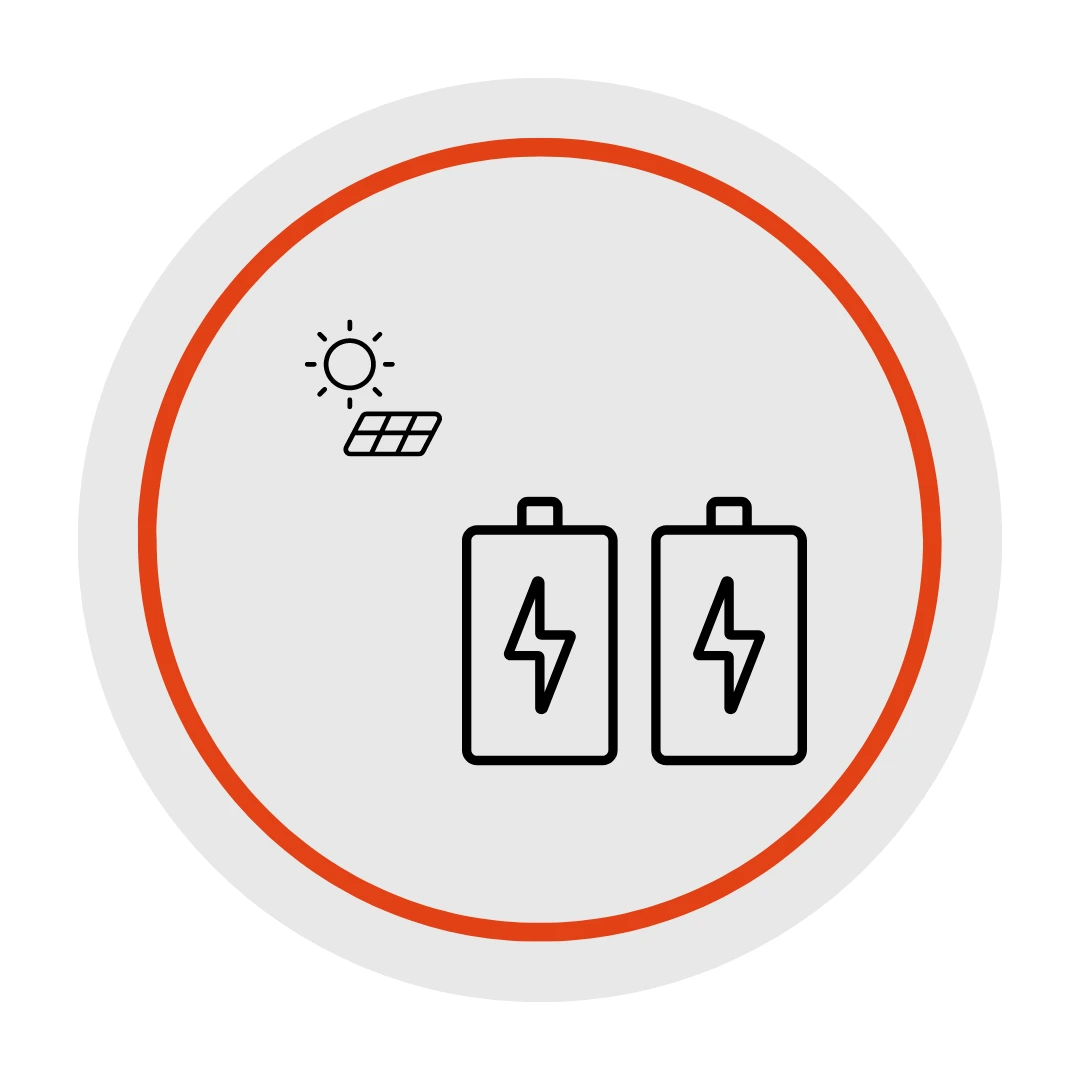
Off-grid Solar
Off-grid solar power system enables us to produce electricity
from solar panels and to store
and use whenever needed.
If you like to produce electricity, store & use
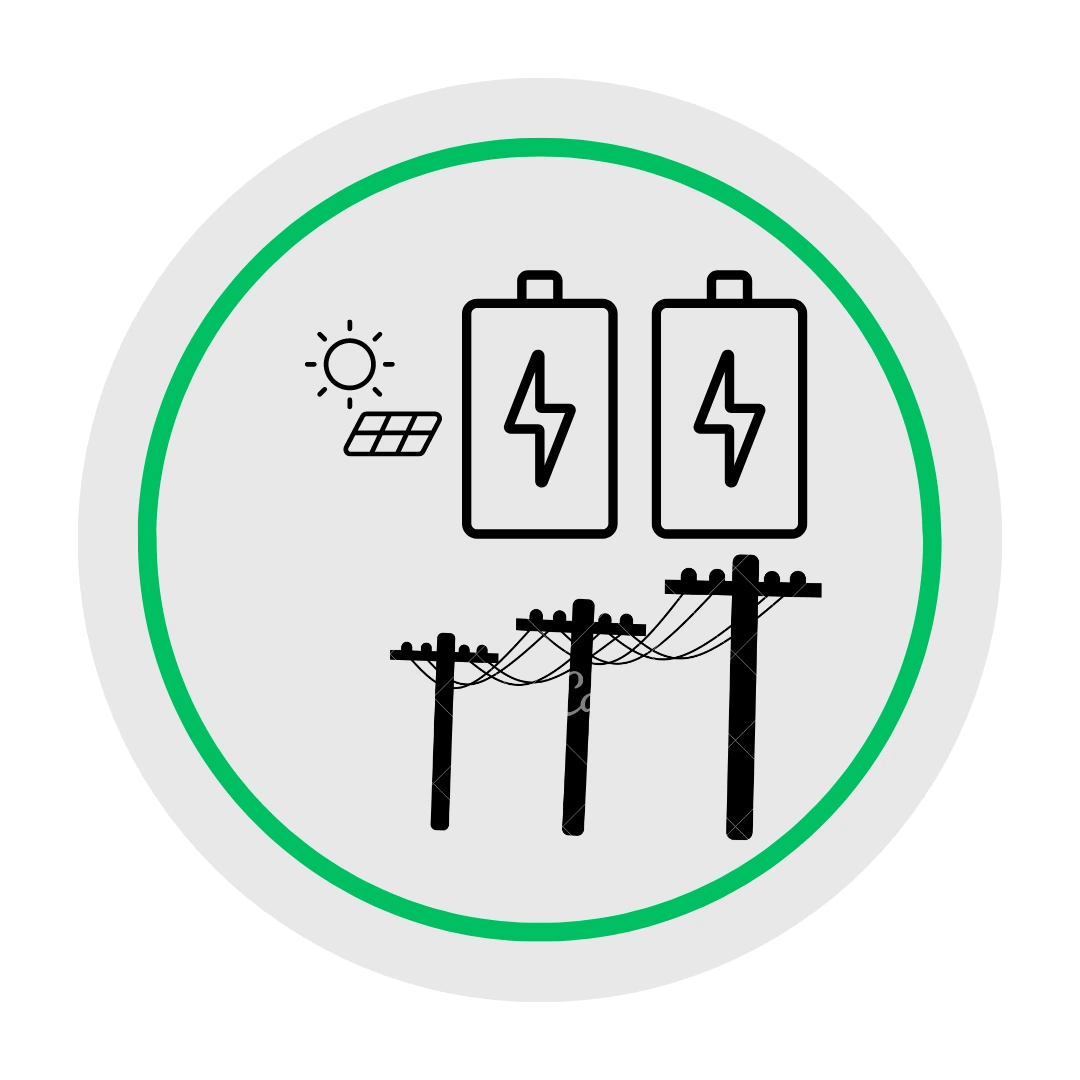
Hybrid Solar
Hybrid solar power system
is a combination of on-grid and off-grid solar systems.
It helps us to store as well as sell electricity.
If you like to produce electricity, store & sell
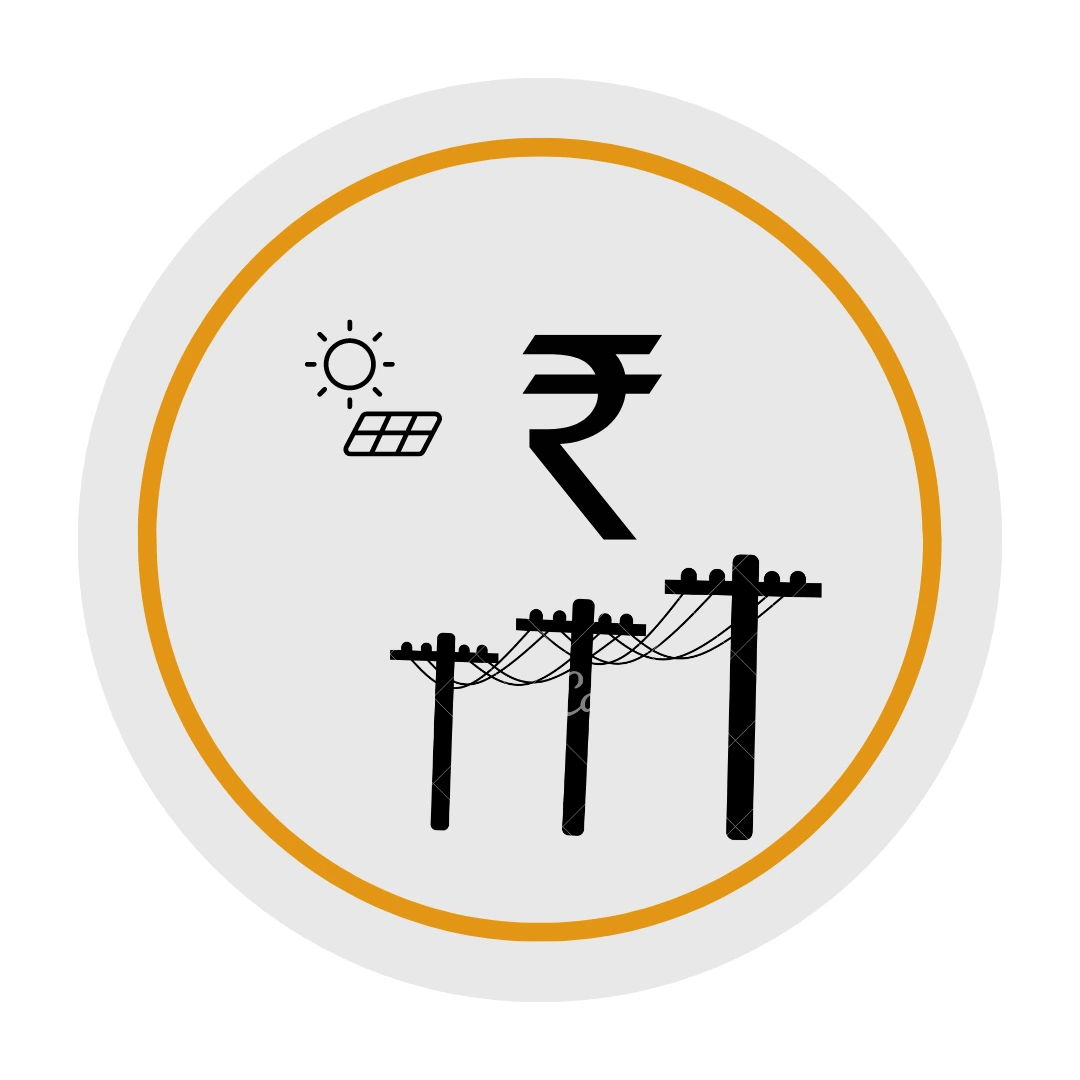
Solar Subsidy
Get subsidy to install on-grid solar power system from MNRE under
PM Suryaghar Yojna or KSEB soura scheme.
If you like to get subsidy for on-grid solar
Brands We Endorse
Get on the fast track to install rooftop solar
- Contact us to get a free consultation from solar power installation
experts. - Enroll in to the solar subsidy scheme to get on-grid. If you need the high quality hybrid system,
get in touch with Enlead Energy solar experts.
Solar Panels are ready to produce electricity. What are you waiting for?
Get the best-in-class solar panels for your rooftop solar. Technology and quality should be the first criterion to select the solar panel brand. We know that you might be confused as to which solar panel or solar brand is best. Worry not, ENLEAD ENERGY is here. We research and understand all the aspects as to which solar panel is best suited for you. For a quick understanding click here

You Can MakeProfit* With these "Battle-Tested" Solar Power
System Design Strategies
Get solar installed with our proven strategies executed by solar professionals*
- We,at enlead energy,design the best solar power plant with
utmost care and diligence. - By maintaining set standards and quality in the solar components as well as in the electrical accessories, we ensures the best in class solar
installation.
Our engineers are pros in solar power.
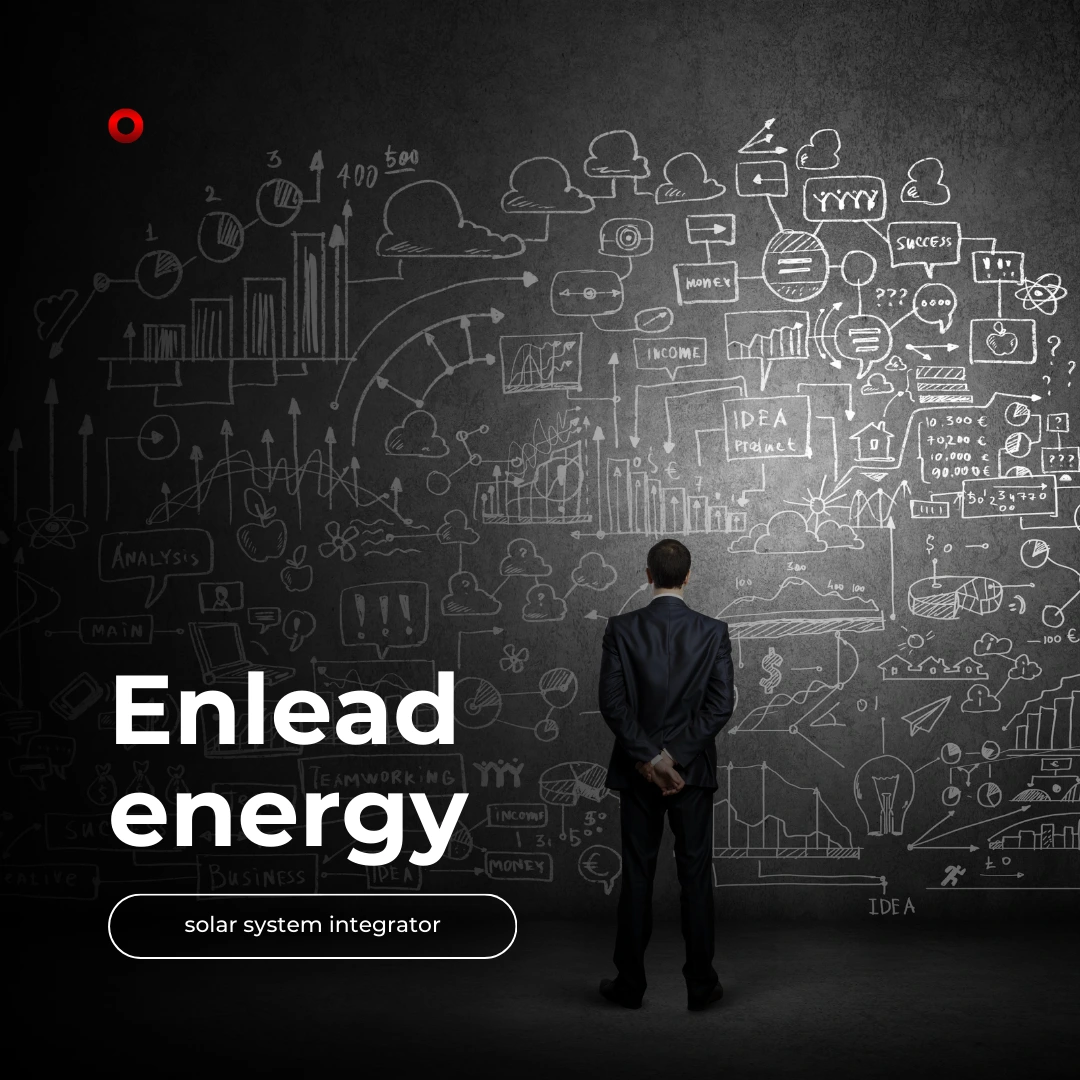
BEST SOLAR COMPANY
When searching for the best solar company in Kerala, look for a provider that combines quality products, expert installation, and excellent customer support. Companies that prioritize innovation and sustainability can help you harness Kerala's abundant sunlight efficiently. Many top-rated firms offer customized solutions tailored to your energy needs, ensuring optimal performance and savings. With a focus on reliability and cutting-edge technology, the best solar company in Kerala not only helps you reduce your carbon footprint but also enhances your energy independence. Whether you’re a homeowner or a business, choosing the right solar partner can make all the difference in your renewable energy journey.
Well,you are at the right website looking for BEST SOLAR COMPANY IN KERALA.
THIS IS HOW SOLAR WORKS
Solar energy is converted to electrical energy using solar panels or otherwise called as PV modules. Direct current produced in solar panels is converted to alternating current(AC current) using solar inverters.

SAVE EARTH
Solar energy is an abundant source of renewable energy.To meet world's energy demand,we burn fossil fuels which ultimately results in climate change.Use solar panels to tap solar energy to produce electricity to save earth from the chaos of climate change.

LONG LIFE
Solar Panels have a long life span ranging from 25 to 30 years.As solar panels are easy to maintain,it is a cheap source of electricity especially in countries lying in tropical region like India. India has announced PM Suryaghar Yojna to give subsidy through mnre subsidy . #soura solar subsidy

NEW TECHNOLOGY
New solar cell technology is bringing highly efficient solar modules into the market. For eg; Topcon n type solar cell solar panels-both monofacial and bifacial solar panels. Companies like adani solar,REC,Longi solar,waree,vikram... have these solar panels.

SAVE MONEY
Ever rising electricity bills are a headache to house owners as well as commercial customers. solar Power system is the perfect solution. We can install ongrid solar power system to produce and export electricity ,thereby reducing power bills #kseb

CHOOSE SOLAR
We must choose the right solar equipments to install solar power system. Always,select the high quality solar panels and solar inverters to get maximum production.For example;In some places,solar micro inverters are the best especially in shaded areas

POWER BACKUP
Recently, hybrid solar power systems are getting popular as it can provide power backup/storage using solar battery as well as sell excess power to grid. Unlike, ongrid solar this system produces power even during power-cut. Hybrid solar system is compatible for lithium ion battery.
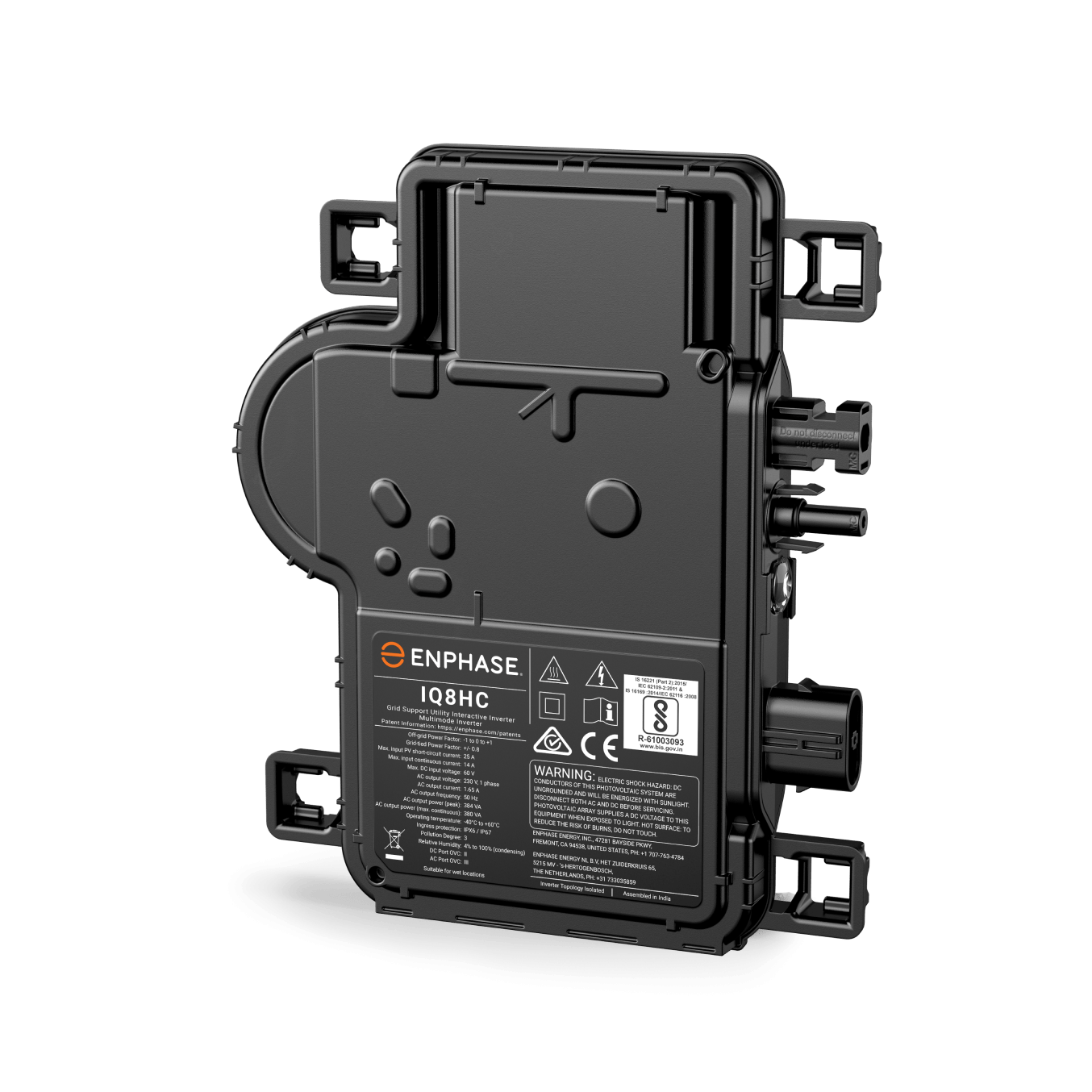
Solar power system with Enphase Microinverters
Advantages of Enphase microinverters in solar power system installation
Solar Panels For Home
Solar panels for homes are becoming a go-to solution for homeowners looking to save on electricity bills and make environmentally friendly choices. With rising energy costs and increasing awareness about sustainable living, renewable energy options are in high demand. Solar panels offer a simple and long-lasting way to convert sunlight into electricity, providing a clean, renewable source of energy. They not only power your home but also help reduce dependence on traditional energy grids, which often rely on fossil fuels. If you have unused rooftop space, you can turn it into a smart, energy-saving investment that cuts costs and even generates income by selling surplus electricity back to the grid. In this blog, we’ll dive into why solar panels are a fantastic choice, how companies like Enlead Energy Solutions simplify the process, and what you should consider before making the switch.
Solar Power System
Home Solar Power Plant Costs - January 2025
Here are some updated figures on the costs of residential solar power systems in Kerala as of June 2024. The ideal solar power setup for a home depends on the size of the property and its energy consumption needs, which typically range from 1 kWp to 10 kWp for residential use. Below are the approximate costs of solar power systems (per kWp) without government subsidies:-
3 kWp system: Rs. 70,000 – Rs. 86,000 per kWp
4-5 kWp system: Rs. 65,000 – Rs. 85,000 per kWp
5-10 kWp system: Rs. 60,000 – Rs. 75,000 per kWp
The total cost depends on the system size and specific components required to meet your household's energy demands.
Home Solar Subsidy - January 2025
If the upfront cost of installing a home solar system has been a concern, it’s worth noting the availability of government subsidies in India that can significantly reduce the financial burden.For example, if your solar vendor suggests installing a grid-connected solar plant with a capacity of up to 3 kWp to meet your energy needs, you may be eligible for a Rs. 78,000 subsidy under the Central Financial Assistance program. Similarly, solar systems with capacities of 10 kWp or higher are also eligible for the same subsidy amount.It’s important to keep in mind that the subsidy amount and benchmark prices may vary depending on your state's specific solar policy.
To ensure you benefit from these subsidies and lower your overall investment, it's essential to work with a reputable solar company that understands the policies and processes involved. Taking advantage of these incentives can make transitioning to solar power more affordable and accessible for your home.
Solar Panels
Introduction to solar panels:
Harnessing the Power of the Sun: An Introduction to Solar Panels
In an era where sustainable energy solutions are becoming increasingly vital, solar panels stand at the forefront of innovation, offering a beacon of hope in our quest for renewable resources. These sleek, photovoltaic marvels have revolutionized the way we harness energy, transforming abundant sunlight into a clean, sustainable power source.
The Essence of solar panels
At their core, solar panels are sophisticated devices designed to capture sunlight and convert it into electricity through the photovoltaic effect. Comprised of countless solar cells, typically made of silicon, these panels absorb photons from sunlight, exciting electrons and generating an electric current in the process. It's a remarkable dance between nature and technology, where sunlight is seamlessly transformed into usable energy with solar panels.
A Renewable Energy Revolution
The allure of solar panels lies not only in their ability to harness an abundant, free energy source but also in their environmental credentials. Unlike traditional fossil fuels, solar energy production produces no greenhouse gas emissions, making it a crucial player in mitigating climate change and reducing our carbon footprint. With each installation, we inch closer to a cleaner, more sustainable future for generations to come.
Empowering Individuals and Communities
Beyond their environmental benefits, solar panels empower individuals and communities to take control of their energy needs. Whether installed atop residential rooftops, adorning commercial buildings, or sprawling across vast solar farms, these panels offer a tangible path to energy independence. They provide an opportunity for homeowners to slash electricity bills, businesses to bolster their sustainability credentials, and entire communities to embrace a greener way of life. #rooftop solar.
Looking Ahead
As technology advances and economies of scale drive down costs, solar panels are becoming increasingly accessible to a broader audience. What was once considered a niche alternative has now blossomed into a mainstream energy solution, with installations soaring worldwide. With each passing day, the sun's boundless energy beckons us to embrace a future powered by light, where solar panels illuminate the path to a brighter tomorrow.
In the journey toward a sustainable energy landscape, solar panels stand as a testament to human ingenuity and our capacity to harness the power of nature. Together, let us embark on this renewable energy revolution, where every ray of sunlight brings us closer to a world powered by the sun.
Oft-times, we ask which is the best solar panel when we plan to install solar power system for home or business. There are certain technical and reliability factors that we need to pay attention to. Our solar experts will help you find the best solar panels by considering your requirements in detail.
Solar Subsidy In Kerala
The Rooftop Solar Programme Phase – II is a key initiative by the Indian government aimed at promoting the installation of grid-connected rooftop solar systems across residential properties, large villas, and housing societies. The program provides fixed financial aid, making the cost of solar systems significantly lower for consumers who qualify for the subsidy. For instance, the price of a 5kW solar panel system in Kerala is much more affordable with the subsidy compared to a system that does not receive financial assistance.These solar plants operate under net metering guidelines, which allow consumers to sell excess electricity generated by their systems back to the local grid, earning solar credits and enhancing their savings.
The recently introduced National Portal for Rooftop Solar is instrumental in facilitating the application and disbursement of solar panel subsidies throughout Kerala and India. This online platform serves as a convenient, one-stop resource for consumers looking to access subsidies for their solar installations. It streamlines the application process, allowing users to easily submit their details and track the status of their applications.Under the updated simplified subsidy scheme, a fixed subsidy or Central Financial Assistance (CFA) amount is provided based on the size of the solar system approved by the state DISCOM. The portal also includes user-friendly features such as eligibility checks, a list of empaneled vendors, and real-time updates, making the transition to solar energy more accessible than ever.
Kerala is making significant strides towards sustainable energy solutions, and solar power is at the forefront of this transition. To encourage the adoption of solar energy, the Kerala government offers various subsidies and incentives. This guide provides detailed information on solar subsidies in Kerala, helping you understand the benefits and how to avail of them. Also, choose the best solar company in Kerala for solar power system installation.
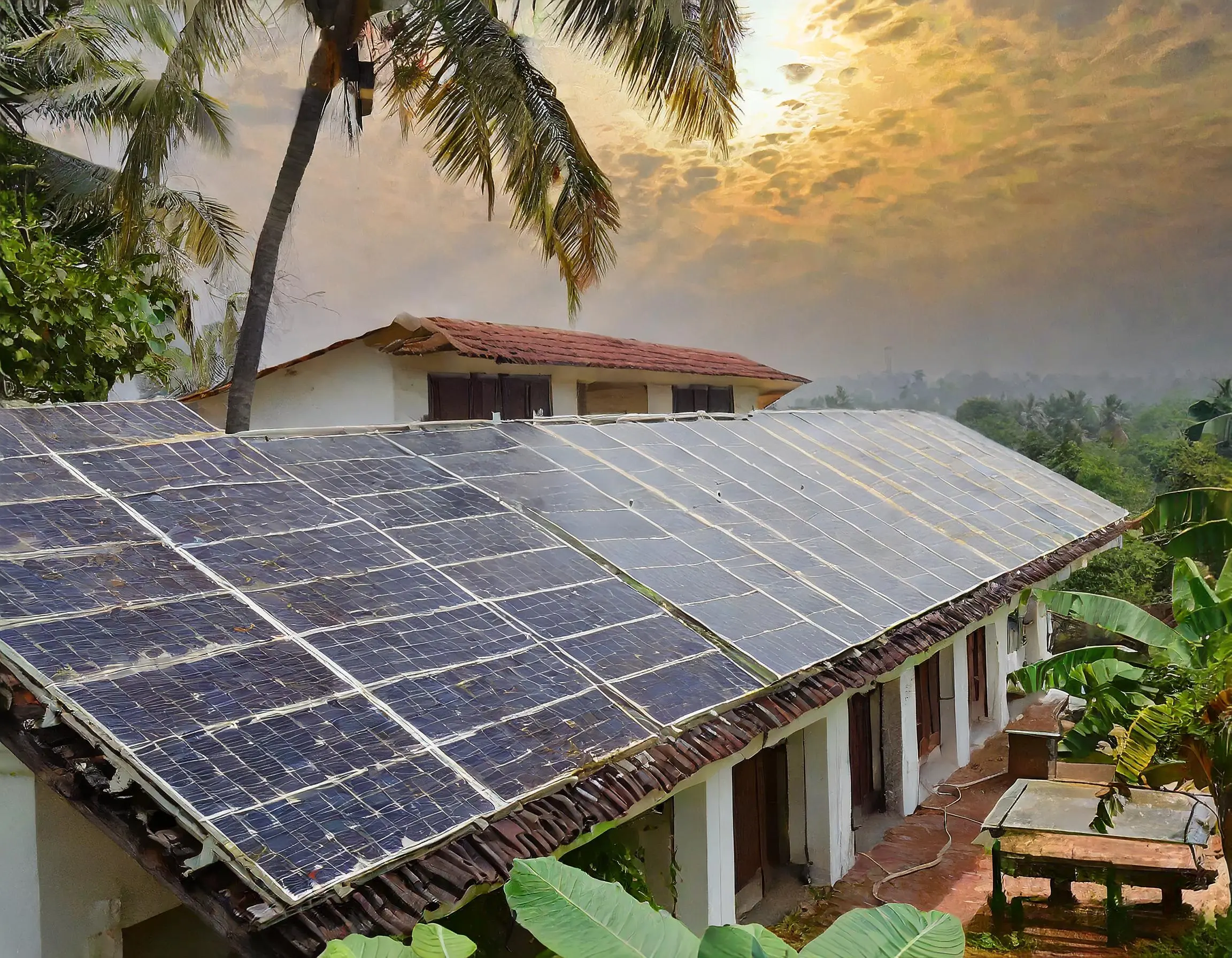
Understanding Solar Subsidies in Kerala:
The Kerala State Electricity Board Limited (KSEBL) and the Agency for Non-conventional Energy and Rural Technology (ANERT) are the primary bodies managing solar energy initiatives in the state. These organizations aim to make solar power more accessible and affordable for both residential and commercial users.
Key Subsidy Schemes In India:
1. Central Government Subsidy for solar
The MNRE provides financial assistance for the installation of solar photovoltaic (PV) systems across India. The subsidies are primarily targeted at residential and institutional installations.
Residential solar power Systems: Homeowners can avail subsidies up to 40% of the benchmark cost for systems up to 3 kW. For systems between 3 kW and 10 kW, the subsidy is 20% of the benchmark cost.
2. State Government Subsidies
In addition to central government subsidies, various state governments offer additional incentives to promote solar energy. These incentives vary from state to state.
Net Metering :
Many states in India have adopted net metering policies including Kerala, allowing you to sell excess electricity generated by your solar panels back to the grid. This can further reduce your electricity bills and increase the return on your investment.
How can i get solar subsidy in Kerala?
To get solar subsidy in Kerala, you can follow a straightforward process through the National Portal for Rooftop Solar. First, check your eligibility based on your property type and the size of the solar system you plan to install. Next, visit the portal and complete the online application form, providing necessary details about your project. Once your application is approved by the local DISCOM (For example, KSEB in Kerala), you'll receive a fixed financial subsidy under CFA that significantly reduces your installation costs. Additionally, ensure your solar system is compliant with the net metering guidelines, allowing you to sell excess electricity back to the grid. By taking these steps, you can enjoy the benefits of solar energy while saving money through government support.
How to apply for solar subsidy in Kerala?
Applying for a solar subsidy in Kerala involves these steps: Gather required documents like ID and electricity bills, choose a certified solar provider, submit your application online through National Portal for Rooftop Solar - Ministry of New and Renewable Energy, and track its status. Ensure your rooftop is shade-free and meets eligibility criteria to maximize your chances of approval. Start your green journey today!
Is it good to install solar power plant in Kerala?
Yes, installing a solar power plant in Kerala is an excellent decision for both residential and commercial properties. The region enjoys abundant sunlight throughout the year, making solar panels highly effective in generating energy. With rising electricity costs, solar energy offers a reliable way to reduce your monthly bills while contributing to a sustainable environment. Additionally, the Indian government provides attractive solar subsidies, making it more affordable to invest in solar technology. Whether you’re considering solar for your home or a non-subsidy solar plant for your business, the benefits of energy independence and lower carbon emissions make solar power a smart choice in Kerala. Embrace the future of energy with solar solutions tailored to your needs!
Benefits of Solar Panels:
Solar panels offer a multitude of benefits that make them an attractive investment for homeowners, businesses, and institutions alike. Here’s a detailed look at the advantages of adopting solar energy.

1. Cost Savings
Reduced Electricity Bills: Solar panels generate electricity from sunlight, significantly reducing or even eliminating your monthly electricity bills. Over time, this leads to substantial savings, especially as energy prices continue to rise. Return on Investment (ROI): The initial investment in solar panels can be offset by the savings on electricity bills. Typically, solar systems pay for themselves within 5-8 years, after which the electricity generated is virtually free.
2. Environmental Impact
Reduced Carbon Footprint: Solar energy is a clean, renewable source that reduces greenhouse gas emissions. By switching to solar power, you can significantly lower your carbon footprint and contribute to combating climate change. Sustainable Energy Source: Unlike fossil fuels, solar energyis inexhaustible and sustainable. Utilizing solar power helps conserve natural resources and promotes a more sustainable future.
3. Energy Independence
Reduced Dependence on Grid Power: By generating your own electricity, you become less reliant on the grid and more resilient to power outages and energy price hikes. Energy Security: Solar panels provide a reliable source of energy, especially in remote or off-grid locations where access to traditional power sources may be limited.
4. Financial Incentives
Government Subsidies and Tax Benefits: Many governments offer subsidies, grants, and tax credits to encourage the adoption of solar energy. These incentives can significantly reduce the upfront cost of installing solar panels. Net Metering: In many regions, net metering policies allow you to sell excess electricity generated by your solar panels back to the grid. This can further reduce your electricity bills and provide additional income.
5. Increased Property Value
Higher Market Value: Homes and buildings equipped with solar panels often have higher property values. Potential buyers are attracted to properties with lower energy costs and sustainable energy solutions. Attractiveness to Buyers: As awareness of environmental issues grows, more buyers are looking for energy-efficient homes. Solar panels make properties more attractive to this growing segment of eco-conscious consumers.
6. Low Maintenance Costs
Durability and Longevity: Solar panels are built to withstand various weather conditions and have a long lifespan, typically 25-30 years. They require minimal maintenance, making them a hassle-free investment. Minimal Operational Costs: Once installed, the operational costs of solar panelsare very low. Regular cleaning and occasional checks are usually all that’s needed to keep them functioning efficiently.
7. Technological Advancements
Efficiency Improvements: Advances in solar technology are continuously improving the efficiency and performance of solar panels, making them more effective and affordable. Integration with Smart Home Systems: Modern solar systems can be integrated with smart home technologies, allowing for better energy management and optimization.
8. Job Creation and Economic Growth
Boosting Local Economies: The solar industry creates jobs in manufacturing, installation, and maintenance. By investing in solar energy, you are also supporting local economies and contributing to job growth. Encouraging Technological Innovation: The demand for solar energy drives innovation and advancements in technology, further enhancing the efficiency and affordability of solar solutions.
Have Questions About Solar ?
Answers to the frequently asked questions about solar power systems
How does the solar power system work?
Solar power systems are a game-changer in the world of energy. By harnessing the power of the sun through the use of photovoltaic cells, solar panels are able to convert sunlight into usable electricity. This renewable energy source not only reduces our dependence on fossil fuels, but it also has the potential to lower greenhouse gas emissions. With the help of an inverter, the electricity generated by solar panels can be used to power homes and businesses, or stored in batteries for later use. By choosing solar power, you're making a smart investment in the future of our planet and taking a step towards a more sustainable future. Simply put, solar energy is converted to electricity by using solar panels.
How does the solar panel work?
Solar panels work by converting sunlight into electricity through the use of photo voltaic cells. These cells are made up of layers of silicon and other materials that produce an electric current when exposed to light. When sunlight hits the panel, the photo voltaic cells absorb the energy and release electrons, which are then captured by metal conductors and sent through wires to an inverter. The inverter converts the direct current (DC) into alternating current (AC), which is the type of electricity used in homes and businesses. The electricity can then be used immediately or stored in batteries for later use. Overall, solar panels are an eco-friendly and cost-effective way to generate electricity.
Which type of solar panel is the best?
There are three main types of solar panels: monocrystalline, polycrystalline, and thin-film.Monocrystalline solar panels are the most efficient and expensive.Polycrystalline solar panels are less efficient but less expensive.Thin-film solar panels are the least efficient but also the least expensive and have a flexible design.Work with a reputable solar installer to assess your needs and recommend the best type of panel for your budget and goals.Instead of mono perc solar cell technology,we have more efficient mono perc solar cell technology.Mono perc gives higher output even in shaded conditions compare to polycrystalline solar cells or poly perc solar cells.TOPCon cell technology is an advancement in PERC technology. In PERC solar cells, the rear surface of the solar cell is passivated with a thin layer of Aluminium oxide (Al2O3). This layer helps to reduce recombination losses, which can improve the overall efficiency of the solar cell.
What are the best solar panels?
There are many good solar panel manufacturers, but some of the top ones include Adani solar, REC, Longi, LG, SunPower, Renewsys, Credence solar, Panasonic solar, Vikram Solar, Waree solar, UTL, Renew, Reliance solar etc. These manufacturers offer high-quality solar panels that are efficient, durable, and reliable. It's also worth considering the warranties and customer service offered by each manufacturer when making a decision. Ultimately, the best solar panels for your specific needs will depend on factors such as your budget, energy goals, and location. Topcon and HJT are being used by different solar manufacturers.
How can we get solar subsidy through PM Suryaghar Yojna?
PM suryaghar Yojna ,executed by MNRE,provides subsidy for ongrid solar power plants.Only residential and residential communities can avail subsidy under mnre subsidy program. Subsidy for residential households is Rs. 30,000/- per kW up to 2 kW .Rs. 18,000/- per kW for additional capacity up to 3 kW .Total Subsidy for systems larger than 3 kW capped at Rs 78,000Subsidy for Group Housing Society/ Resident Welfare Association(GHS/RWA) Rs. 18,000 per kW for common facilities, including EV charging, up to 500 kW capacity (@3 kW per house) with the upper limit being inclusive of individual rooftop plants installed by individual residents in the GHS/RWA.
Who is eligible to apply for PM surya ghar muft bijli yojna?
The applicant must be an Indian Citizen.
The applicant must own a house suitable for installing solar panels.
The applicant must not have availed any other subsidies to install solar power systems.
The house hold must have a valid electricity connection.
Will i get subsidy for offgrid and hybrid solar power systems?
No,only ongrid / grid tie solar systems are covered under KSEB soura subsidy scheme and mnre subsidy scheme.
What is a hybrid solar power system?
Hybrid solar power systems refers to the solar systems comprises of power backup/power storage and selling/export of excess electricity produced using solar panels. Hybrid solar combines a solar inverter and a battery inverter into a single unit. This allows the hybrid solar inverter to intelligently handle power coming from solar panels, solar batteries, and the utility grid all at the same time. It intelligently manages to sell electricity as well to provide backup during outages. At night, house load will be powered through battery incase power cut occurs.
Which company solar panel is best in Kerala?
As Kerala continues to embrace renewable energy, solar power has emerged as a leading choice for both residential and commercial setups. With abundant sunlight year-round, the state is a prime candidate for solar energy solutions. However, with numerous solar panel manufacturers and suppliers in the market, choosing the right company can be overwhelming. In this blog, we’ll explore some of the best solar panel companies in Kerala, their offerings, and what sets them apart.
Which Company Solar Panels is Best in India?
When considering the best solar panels in India, top companies like Adani Solar, Renewsys, Premier energies, Havells solar, Vikram Solar etc stand out for their efficiency, durability, and exceptional customer service. These brands offer a range of options that cater to various energy needs and budgets. By comparing features, prices, and customer reviews, you can identify the ideal solar solution for your home or business. Making the switch to solar not only enhances energy savings but also contributes to a sustainable future.
Are Enphase microinverters worth it ?
Enphase microinverters offer several advantages over traditional string inverters, making them a compelling choice for solar energy systems. They perform reliably in all climatic conditions, ensuring optimal energy production year-round. With enhanced efficiency in low-light situations, Enphase microinverters maximize energy output when sunlight is scarce.Additionally, they enable real-time monitoring of each solar panel, allowing for easy performance tracking and maintenance. Installation is quick and straightforward, requiring minimal wiring and just a few minutes from your installer. These features make Enphase microinverters not only safe but also highly effective.If you’re asking, “Are Enphase microinverters worth it?” the answer is a resounding yes for those looking to enhance their solar energy experience.
How Enphase System Works?
Enphase Systems offer a comprehensive solar energy solution by integrating solar generation, battery storage, and smart technology for optimal efficiency in your home. With Enphase Microinverters, each solar panel converts direct current (DC) power into alternating current (AC), maximizing performance even in varied conditions. The Enphase AC Batteries store excess energy for later use, reducing reliance on the grid. Monitoring your system is easy with the Enlighten software, allowing you to track production and identify issues. Supported by Enlead Energy Solutions, which provides installation and financing options, Enphase Systems empower homeowners to harness solar energy effectively and sustainably.
How much does a solar rooftop cost?
The cost can vary based on your location, roof size, and energy needs. However, investing in solar typically pays off within a few years through energy savings.
Range of average cost of rooftop solar panels for home without subsidy in India:
1 kW rooftop solar system: ₹70,000 to ₹1,05,000.
3 kW rooftop solar system: ₹1,80,000 to ₹2,60,000.
5 kW rooftop solar system: ₹3,20,000 to ₹4,10,000.
How much does a 3KW solar system with hybrid inverter cost?
The 3kw hybrid solar system cost can vary based on your location, battery type, hybrid inverter brand, roof size, and energy needs. However, investing in solar typically pays off within a few years through energy savings.
3 kW rooftop solar hybrid system: ₹2,80,000 to ₹3,60,000 (with DeyeLithium ion battery).
How Solar Panel generates electricity?
Solar panels convert sunlight into electricity using photovoltaic (PV) cells made of semiconductor materials like silicon. When sunlight hits the PV cells, it excites electrons, creating an electric field through the photoelectric effect, which generates a direct current (DC) of electricity. This DC is then converted into alternating current (AC) by an solar inverter.
What is a Hybrid Solar System?
A hybrid solar power system is a solution that combines both on-grid and off-grid systems to make the best use of it. It combines solar panels, battery storage, and grid power. It uses solar energy during the day and stores excess power in batteries for use at night or during power outages. When solar energy is not available, the hybrid system can draw electricity from the grid or the stored batteries to ensure reliable power supply.
Frequent Questions
What is a solar power system?
A solar power system, also known as a photovoltaic system, generates electricity by converting sunlight into usable energy. It typically includes solar panels, an inverter, and sometimes batteries. The solar panels absorb sunlight and convert it into direct current (DC) electricity. This DC electricity is then transformed into alternating current (AC) by an inverter, making it suitable for powering household appliances or feeding into the electrical grid. If the system includes batteries, they store excess DC electricity for use during periods without sunlight.
What is a hybrid solar power system?
Hybrid solar systems integrate solar panels, battery storage, and grid electricity. They generate power from sunlight during the day, store any surplus energy in batteries, and automatically draw from the stored energy or the grid when solar power isn’t available.
What maintenance does a hybrid solar power system?
Hybrid solar systems require regular cleaning of the panels, battery maintenance, and occasional inverter checks to ensure optimal performance. Proper maintenance can extend the system’s lifespan to 20-25 years, with battery replacements needed every 5-10 years. Lithium ion battery typically has 6000 life cycles.
What is the Warranty offered for your solar system with subsidy?
All our solar power systems include a 5-year limited manufacturing warranty, based on the warranty terms provided by each component manufacturer. Customers can also choose extended product warranties for individual parts such as solar panels and inverters, depending on the selected brands. Any warranty coverage beyond the initial 5 years is handled directly by the respective manufacturers, and Enlead Energy Solutions- solar company will assist with claim support at our discretion on a chargeable basis.
How much does a 5KW Hybrid Solar Power System costs?
A 5 KW hybrid solar power system with Topcon solar panels, 5KW hybrid inverter and Lithium ion Battery will cost around Rupees 5,50,000. It has a comprehensive warranty coverage for 5 years and apart from this individual product warranty is there. It is handled directly by the respective manufacturers, and Enlead Energy Solutions- solar company will assist with claim support at our discretion on a chargeable basis.

About our solar company - Enlead Energy
The Solar Installation
We offer solar system installation services across Kerala for residential, commercial, and industrial clients, delivering customized and efficient renewable energy solutions. Backed by our in-house solar structural design and fabrication teams, we ensure every project is built to the highest standards of quality and durability. Our installations feature fully waterproof solar structures and power plants, designed to protect your property while maximizing the use of available space - whether on rooftops, terraces, or open land. By combining advanced engineering with practical design, we help our customers generate clean energy and make the most of their valuable real estate.
We specialize in the design, supply, and installation of home and commercial solar power plants across Kerala, delivering complete end-to-end solar energy solutions. Our services are available in all major cities and districts, including Kochi, Thrissur, Kozhikode, Palakkad, Thiruvananthapuram, Malappuram, Kannur, Kottayam, Wayanad, Kasaragod, Pathanamthitta, Alappuzha, Idukki, and Kollam. We are one of the best solar panel supplier in Kerala.
With a dedicated in-house team of skilled engineers and technicians, along with an extensive dealership and service network, we ensure reliable installation, timely maintenance, and long-term performance support for every project. In addition to turnkey installations, we also offer custom solar kits - deal for customers who prefer flexible, ready-to-install solar solutions for homes, businesses, or institutions. Whether you’re looking to cut down electricity costs, reduce your carbon footprint, or move toward energy independence, we provide sustainable and cost-effective solar solutions tailored to your energy needs.
Solar For World - Enlead Energy
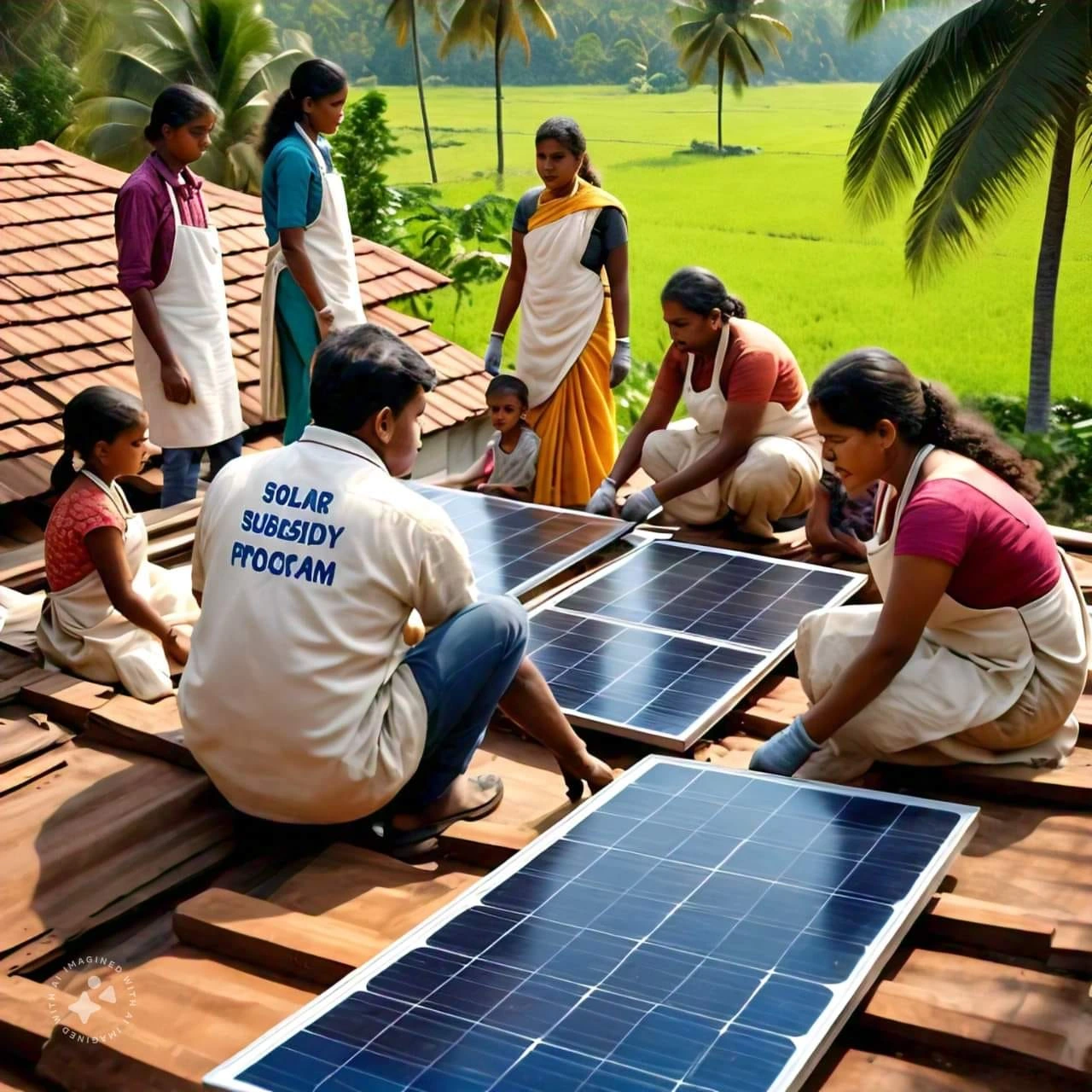
3kw solar power system with subsidy
Empowering Kerala: 3kw solar panel price with subsidy benefits(2024)
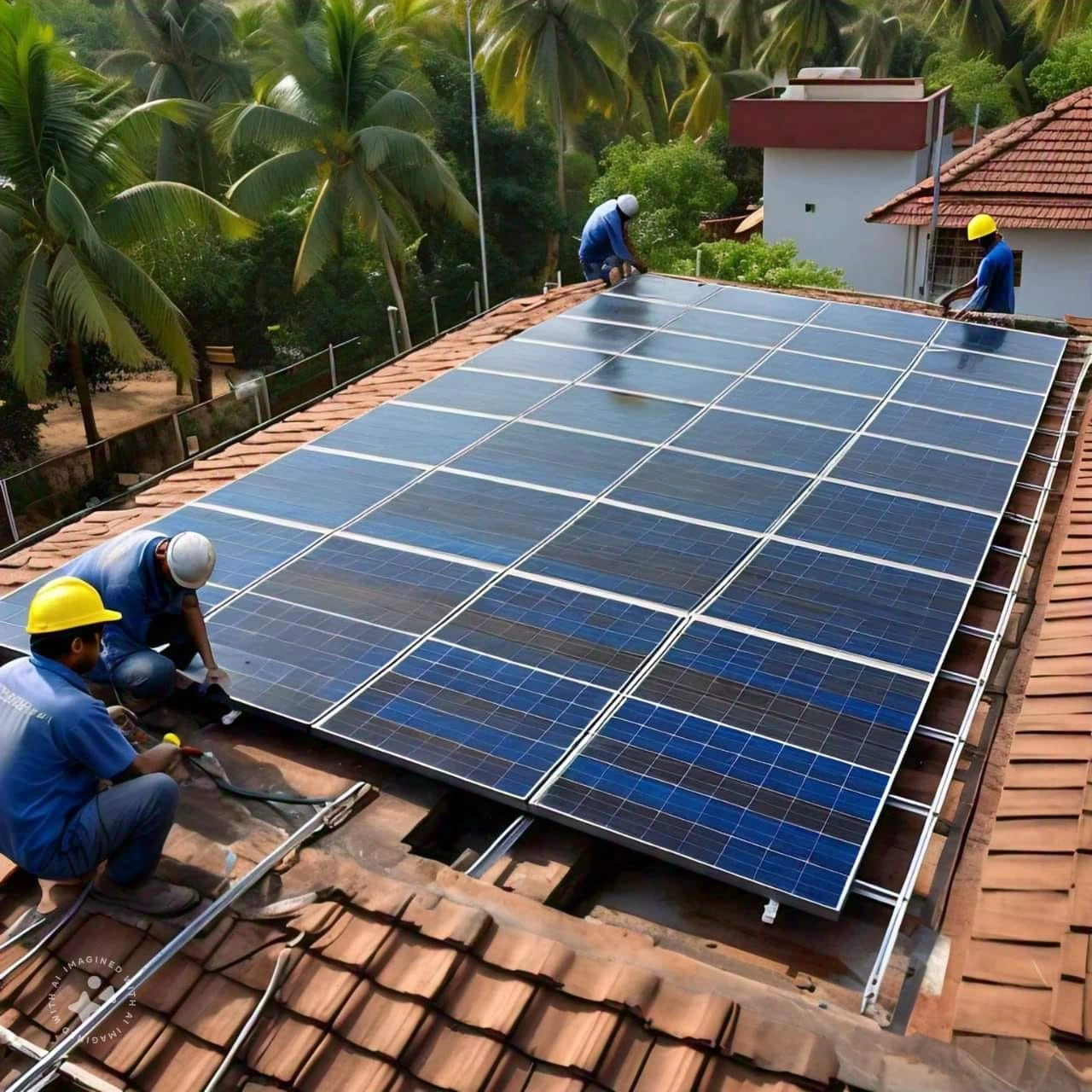
5kw solar power system with subsidy
Empowering Kerala: 5kw solar panel price with subsidy benefits(2024)
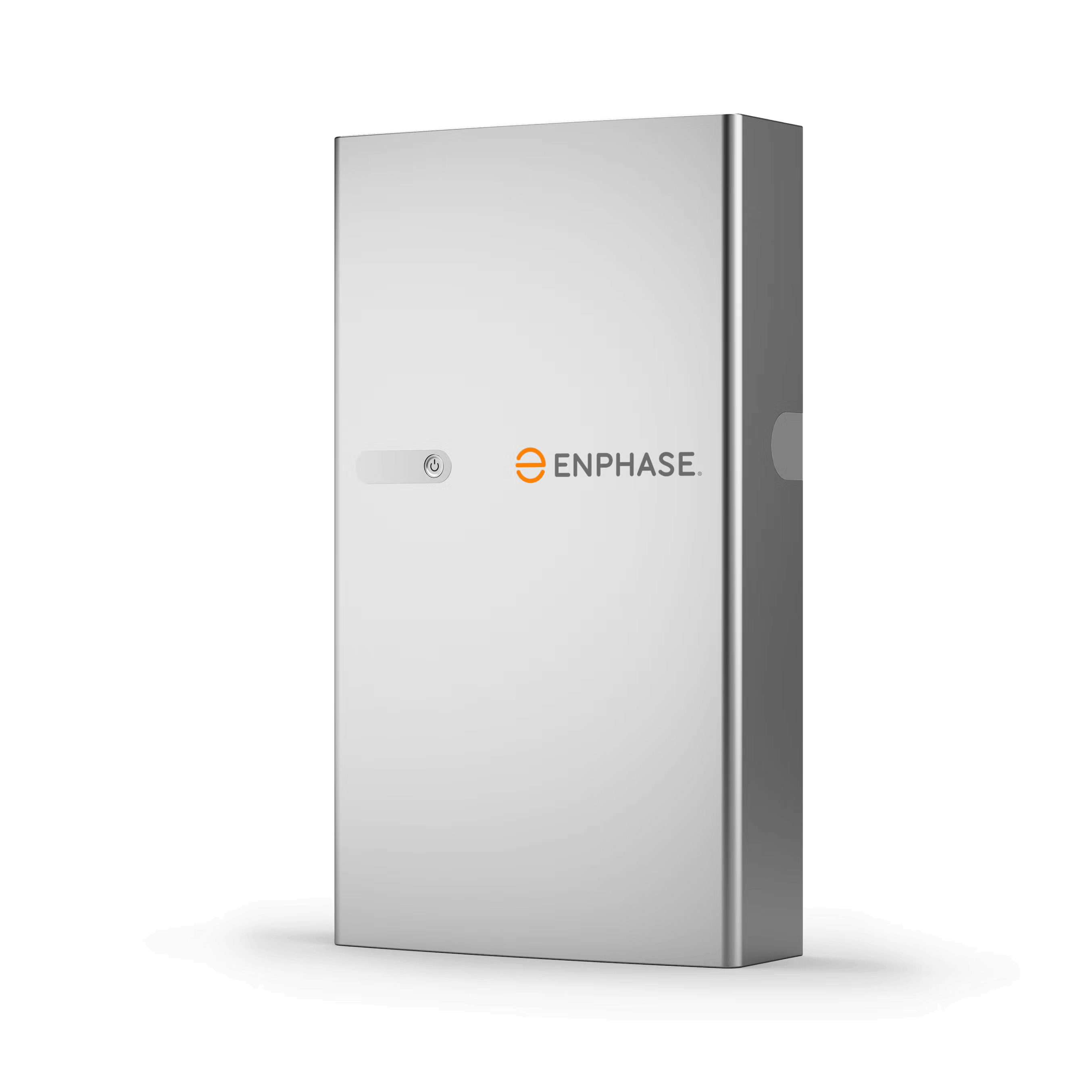
Enphase IQ5P Battery- Hybrid solar solution
Enphase IQ5P Battery- Hybrid solar power solution. IQ5P is an AC Battery with Lithium ion phosphate cells.

Best solar company in Kerala : What makes them stand out
Discover the best solar company in Kerala, offering expert solutions, high-quality products, and sustainable, cost-effective energy for homes and businesses.

Solar Panels in Kerala: A Sustainable Solution for Cost Savings, Energy Security, and Job Creation
Install solar panels in Kerala for cost savings, energy security, sustainability, and job creation. Go green with Enlead Energy Solutions today!







